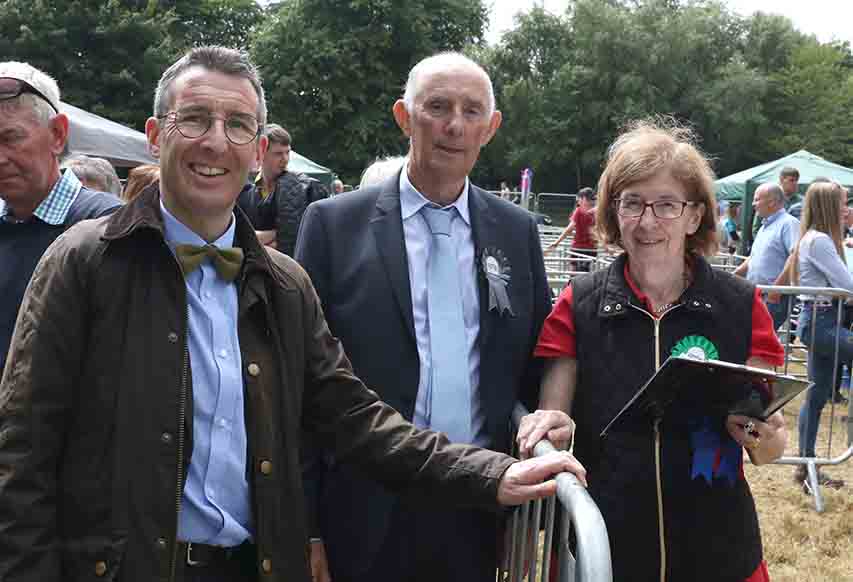UFU lobbies AERA Committee on critical need for sheep support
The Ulster Farmers’ Union, Sheep Taskforce and industry representatives met with the Agriculture, Environment and Rural Affairs Committee yesterday (12 September), on the lack of specific sheep support in DAERA’s future agricultural policy.
The Basic Payment Scheme makes up the majority of farm families income, with sheep farmers having one of the lowest incomes.
UFU deputy president Glenn Cuddy said: “We came away from the meeting having made it very clear that sheep support needs to be added into future agriculture support.
“Sheep farmers across the region are still set to lose out on 18% of their BPS with no way to make up for the shortfall, as many farm severely disadvantaged land which is not suitable for growing crops or raising cattle.
“Therefore, they can’t benefit from the Beef Carbon Reduction Scheme or the Suckler Cow Scheme, and Areas of Natural Constraint payments ended in 2017.”

The UFU and sheep industry reps have planned a meeting with DAERA Minister Muir in the coming weeks, to discussion the matter further.
Commenting Sean Fitzpatrick, Northern Ireland Agricultural Producers’ Association said, “The sheep industry contributed £109 million in 2023 to the NI economy.
“But how can anyone expect our sheep farmers to maintain this when their income, which needs to support not only a business but a home, is getting significantly cut?
“NI sheep farmers have some of the lowest incomes and they have to deal with a wide range of challenges like every other farmer including weather, land availability and quality, market fluctuations, age demographics, lack of capital investment measures, planning, disease, labour, trade, research and genetics.
“If support is not provided for sheep businesses to help them manage these challenges and thrive, it has the potential to put many farm families out of business.
“The impact of which would ripple into rural communities, impact the environment and the supply chain.
“When you consider what sheep farming already delivers for everyone in society, it is evident that the potential is there to do so much more with the right support.
“We would be missing an immense opportunity not to support sheep farmers. With the correct policy, our sheep farmers can help sustain rural communities, increase carbon sequestration, reduce greenhouse gas intensity, enhance the landscape and improve biodiversity.”

During the meeting England’s Sheep Animal Health and Welfare Review Scheme and the Republic of Ireland’s Sheep Improvement Scheme and National Sheep Welfare Scheme, were also discussed.
“Overall, the engagement from the AERA Committee was positive on each of the matters that we brought to the table.
“Now we look forward to meeting with DAERA Minister Andrew Muir, in the hope of getting essential support in place for our sheep farmers, showing them that the work they do is valued, and giving the next generation the confidence to invest in this commodity,” said Mr Cuddy.


























